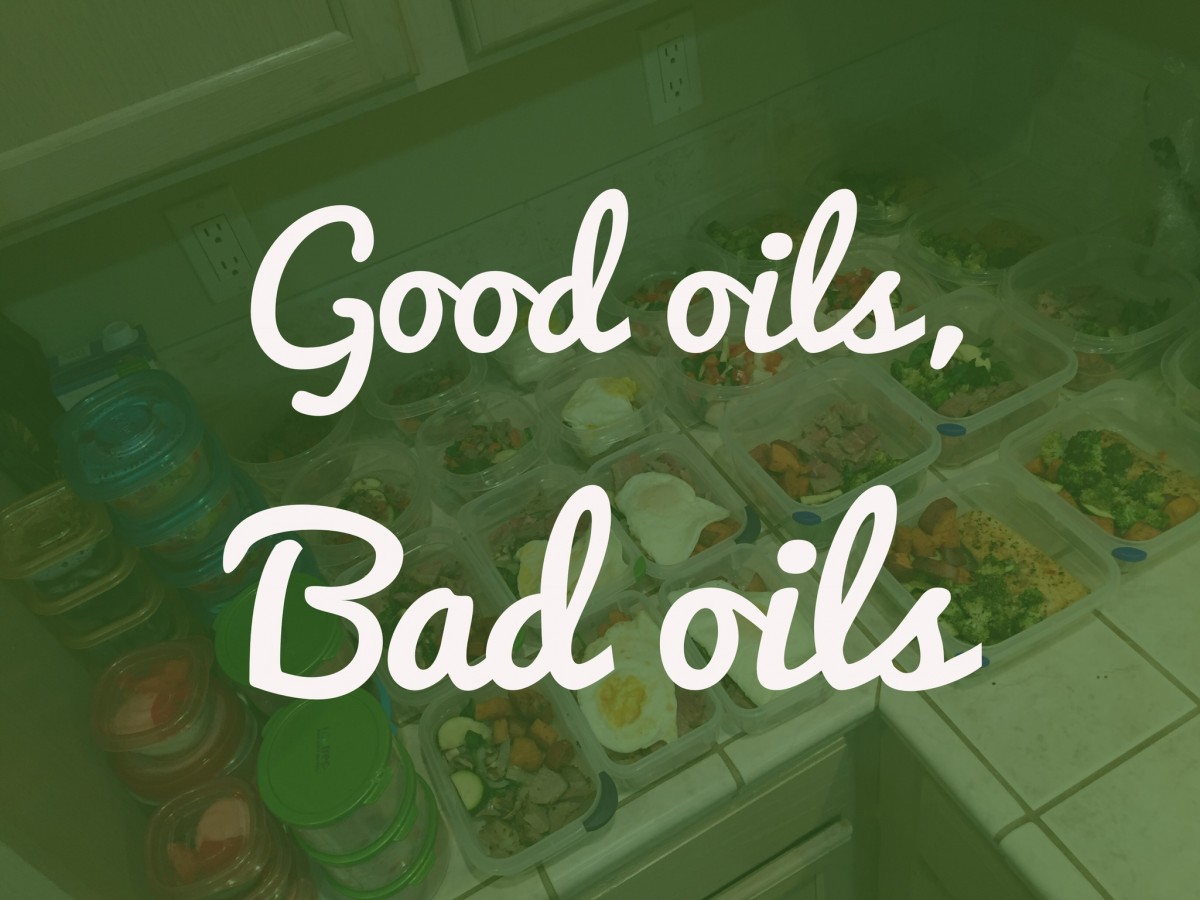Good Oils, Bad Oils
In case you didn’t get the memo in the last 10 years that coconut oil and butter are in and margarine and Canola oil are out, new science is in to enhance this point.
This time it’s Canola oil specifically that’s on the chopping block.
According to new research from Temple University, Canola oil might have detrimental effects on your brain.
While research suggests that olive oil can help decrease the chances of developing Alzheimer’s, this new study says Canola oil is bad, bad, bad for the memory.
Despite this, Canola oil continues to be one of the most popular cooking oils in the world, largely because of outdated thinking that labeled it as one of the healthier oils, not to mention it’s much less expensive than other fats.
So when it comes to oils and cooking fats, what’s in and what’s out?
OUT:
- Margarine
- Canola oil
- Peanut oil
IF YOU MUST:
- Butter
- Lard
- Bacon grease
IN:
- Duck fat
- Ghee
- Coconut oil
- Macadamia nut oil
- Olive oil
- Walnut oil
- Avocado oil
- Flaxseed oil
Here’s the thing, though. When it comes to cooking with oil, it’s important you keep them below their smoke point—meaning before it burns to the point of smoking—and all oils have different smoke point temperatures.
Once they reach the smoke point, they start to decompose and release free radicals and toxic fumes, removing them from their pure state.
Let’s take a look at some good oils and fats:
Ghee:
As delicious as butter is, ghee is a healthier alternative. Ghee, also known as clarified butter, is better for you because all its milk constituents have been removed.
You can even make it yourself, by melting butter in a pan and straining it in a cheesecloth so as to keep only the pure fat. Best options are from grass-fed, pasture-raised animals.
Duck Fat:
Not only is duck fat so delicious, you’ll think you’re eating at a high-end French restaurant, it’s a healthy option, too.
It has a high proportion of monosaturated fat and is a stable fat to cook with (If you deep fry anything, use duck fat.
It’s not cheap, but it’s well worth it). It’s also unprocessed, compared to many other cooking fats and oils that are treated with chemicals.
Flaxseed oil:
Omega-3 fatty acids are sensitive to heat, and since flaxseed oil is high in ALA (alpha-linolenic acid), which is the parent fatty acid to Omega-3 fatty acid, it’s best to use flaxseed oil cold, for example, in a salad dressing or as a finishing oil on cool vegetables, and avoid cooking with it.
Walnut oil:
This oil is a great source of Omega-3 fatty acid, which means it’s also best not to heat it to a high temperature (though there are more refined versions that are generally labeled safe for high-heat).
Unrefined versions are safe to heat up to 320 F, so you’re good to use it to cook over medium heat.
Olive oil:
Olive oil is a great source of healthy monosaturated fat. Its smoke point is 325 F, but it’s fairly resistant to oxidation, so it’s better than the above two oils for high-heat cooking.
Macadamia Nut oil:
Its smoke point is a lot higher than most—413F—so go nuts and use it for cooking at high heat. On top of this, macadamia nut oil is high in monosaturated fat and has been shown to decrease inflammation in the body.
Coconut Oil:
Healthy and delicious. Coconut oil is a great butter replacement in any recipe and is also good for sautee-ing vegetables etc..
Avocado oil:
This oil can withstand high heats, so use it for cooking and/or as a finishing oil.
Even if you’re not stoked about buying 10 different oils for cooking and dressings, if you do one thing, do this: Throw out your Canola oil!







